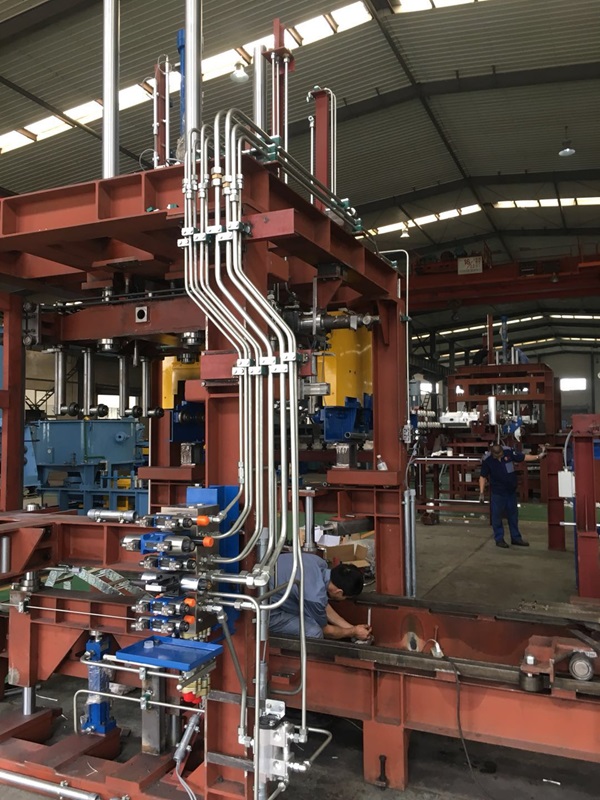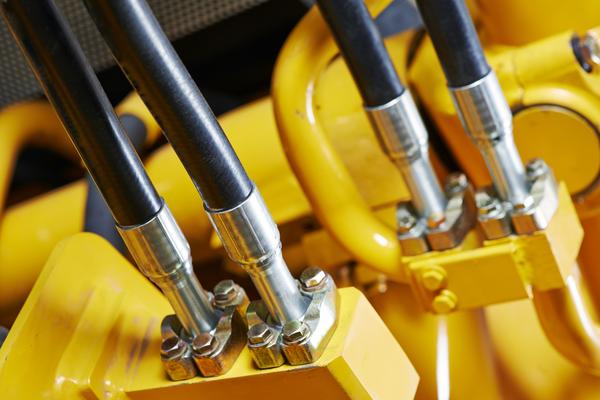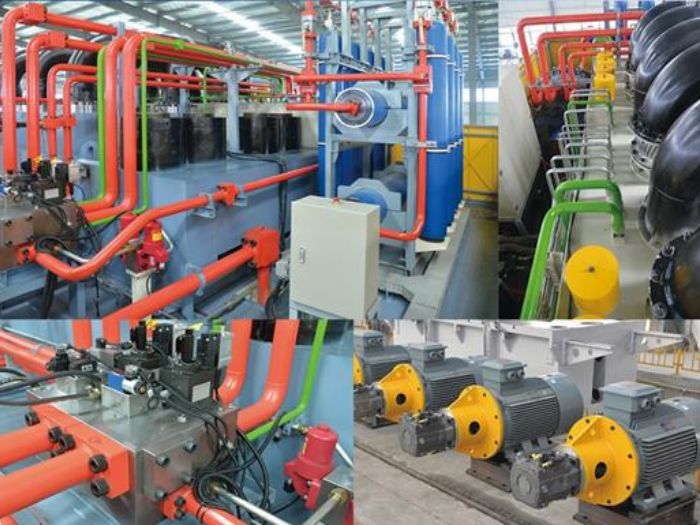Hydraulic hoses are an often overlooked part of hydraulic press maintenance, but they are essential to the safe operation of the machine. If hydraulic oil is the lifeblood of the machine, then the hydraulic hose is the artery of the system. It contains and directs the pressure to do its job. If a hydraulic hose fails, it can cause the load to drop at an inappropriate time, causing the hydraulic press machine to fail, or even injure the worker.
This article will deeply examine the causes and preventive measures of hydraulic hose failure.
1) Pipe Corrosion
Pipe corrosion is characterized by cracks in the inner surface of the hydraulic hose. It is usually caused by continuous high-speed fluid flowing through the pipe or fluid contaminated by small particles.

Using a hydraulic hose that is too small can cause faster fluid velocities. Small holes accelerate the flow of fluid. In some cases, bending the hydraulic hose too tightly can have this effect. The fluid accelerates and thus causes excessive corrosion here.
Fluid contaminated by small particles is another source of corrosion. It acts like sandpaper, flowing over the inner surface of the pipe, breaking it up and wearing it away. Eventually causing the pipe to rupture.
This requires us to replace the hydraulic oil filter regularly and keep the hydraulic oil pure.
2) Heat Hardening
Excessive heat can cause hoses to become hard and brittle. Heat causes the elastomeric material to break down and lose its flexibility over time. This causes the inner tube to harden and begin to crack, and the outer shell may appear cracked, dry out, or turn black.
To avoid heat hardening, replace the hose with a higher heat rating, or take steps to reduce the temperatures it is exposed to. Installing a protective cover or heat shield will help protect against ambient heat.
3) Wear
Wear is the most common reason hydraulic hoses break down. Contact with moving parts and sharp edges can quickly lead to extreme wear. Even slight vibrations can have an abrasive effect. Over a longer time, these can damage the hose. Therefore, it is important to consider how the hose is routed to avoid severe potential wear.
4) Excessive pressure
If the hose is very clean and has significant wear, this indicates that the hose may be subject to greater pressure than it was designed to handle. In this case, reduce the operating pressure to below the hose’s maximum pressure rating or replace it with a hose with a higher operating pressure.
5) Incompatible hydraulic fluid
Not all hydraulic fluids are compatible with all hose types. Incompatible fluids can cause the inner tube of the hose to deteriorate, swell, and delaminate. This is particularly dangerous. Never use hydraulic fluid without checking the hose compatibility. To be safe, you must ensure that the fluid is compatible not only with the inner tube but also with the outer cover, fittings, and O-rings.
6) Exceeding the minimum bend radius
Although hydraulic hoses are flexible, they all have limits that must not be exceeded. Exceeding the minimum bend radius can cause buckling, kinking, and clogging, which can over-pressurize the hose and cause blowout failures. To prevent failures, check the length and routing of the hose to ensure that its turns do not exceed the minimum bend radius specified by the hose manufacturer.
7) Improper assembly
Improper assembly is another cause of hydraulic hose failure. If the hose fitting is not seated deep enough and is not crimped and secured correctly, the higher operating pressure will quickly cause the fitting to leak or the hose to burst. Therefore, when installing hydraulic hoses, the hoses should be carefully cleaned and rinsed to prevent contamination from residual grinding debris. The ends of the hoses should be clamped after the fittings are crimped in place.
8) Exceeding the maximum service life of hydraulic hoses
Hydraulic hoses have a long service life and are subjected to extremely high pressure during use. Therefore, they are prone to stretching, fatigue, and eventually failure. Therefore, it is very important to understand the service life of hydraulic hoses. Replace them before reaching the maximum service life of the application.
The above are all possible causes of hydraulic hose failure and the corresponding solutions. Zhengxi is a professional hydraulic press manufacturer with experienced technicians who can provide you with suitable hydraulic press solutions. If you have any questions, contact us.
Post time: Jun-04-2024







